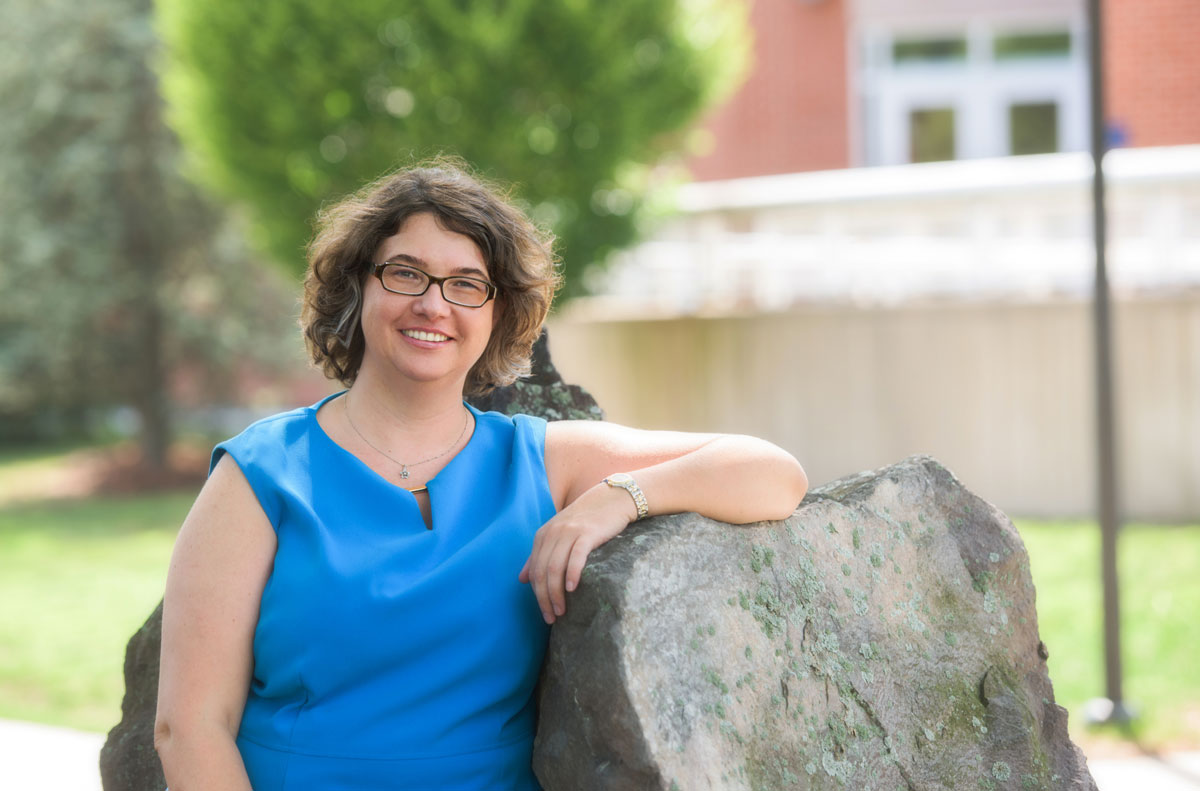The death of one’s child to cancer – or due to any reason, for that matter — is one of the most emotionally devastating events that could befall a person.
While suffering intense sadness, each parent handles the grieving process in unique ways. But Christine Denhup, an assistant professor of nursing at Southern Connecticut State University, recently found five common threads among parents who participated in an in-depth study of what their lives have been like since losing their child.
The qualitative study involved lengthy interviews with six parents across the country – five mothers and one father – from six different families who had lost a child to cancer. Their children’s ages ranged from 4 to 12 at the time of death, and their illnesses included leukemia, lymphoma and brain tumors. The interviews were conducted at least 16 months after the loss of their child, but in one case, 41 years had elapsed.
“Surprisingly, there has been very little research on the experiences that parents have undergone when losing one of their kids to cancer,” Denhup said. “It is important for health-care providers and others to better understand what life is like for these parents so that we can help them.”
Denhup, who has been a nurse for more than 25 years, in addition to teaching at SCSU for the last eight years, found the following five common experiences among the parents:
*New State of Being – Participants said they were thrust into a permanent “new normal” after the loss of their child. “They referred to it as the aftermath of a tsunami in their lives,” Denhup said. After the initial grief, many changes persisted.
*Profound Suffering – Each individual had “triggers,” things that sparked an acute bout of increased negative emotions. Those specific triggers differed from person to person, but each experienced them in some way. “For one parent, seeing their child’s friends growing up was a trigger,” Denhup said. “Yet, for another parent, seeing their kid’s friends grow up helped reduce their suffering.” All experienced profound suffering at certain times, triggered by different stimuli.
*Continued Parenting Relationship – In each case, the parent continued to have a relationship with their child even after their death, according to Denhup. This kind of relationship differed from parent to parent. “One mom talked out loud to their child,” she said. “To honor his son, one dad went to a Cub Scout graduation – a ceremony that his son would likely have been part of if he had still been alive.”
*Self-renaissance – Their identity – who are they are a person – changes forever. They developed a “pretend self” to help them cope with day-to-day life. For example, they might be very sensitive to their loss at home, but at work, they take on a different persona that helps them avoid an emotional meltdown.
*Journey Toward Healing – In learning to live with the loss, the parents developed forms of self-care. For one parent, journaling about their feelings and experiences was a way to help them.
Denhup said that family, friends and co-workers often will try to help the parents through the most difficult periods. But she said there are some approaches that can help to mitigate their suffering, while other approaches may provoke increased sadness, unintentionally.
Positive steps that others can take include remembering the children in some way and engaging in a conversation about the children if the parents are willing or eager to do so. But comparing their own losses to a parent’s loss of a child often elicits a negative response because of the perceived disproportionate grief. Similarly, relatively trivial complaints about their own life is bound to engender a similar reaction. Worse, telling a parent that they have other healthy children or that they need to get on with their lives can be very hurtful.
Denhup’s research constituted her dissertation for her Ph.D. in nursing from Seton Hall University. The research was published in the August 2015 online edition of the Omega Journal of Death and Dying. It also served as a basis for a chapter in the book, “A Parent’s Guide to Enhancing Quality of Life in Children with Cancer.”
Last fall, Denhup delivered a presentation, “Advancing Nursing Knowledge of Parental Bereavement Through Phenomenology,” during a joint meeting (via video-conferencing) between nursing faculty at SCSU and Liverpool John Moores University. The two universities entered into a partnership last year.
Among the courses she teaches at SCSU is the “Palliative and End-of-Life Colloquium.”


